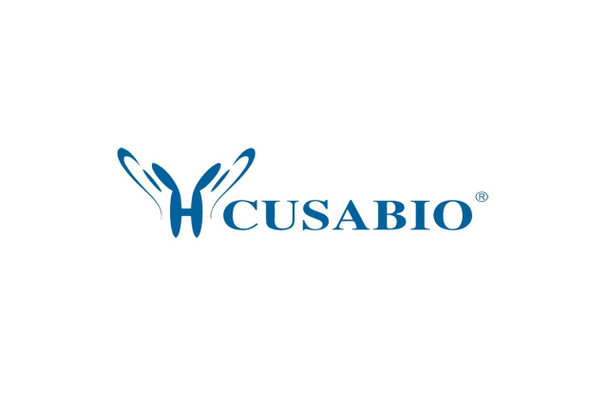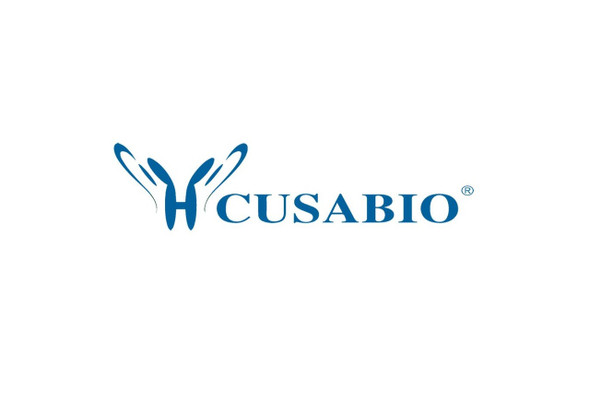Cusabio Human Recombinants
Recombinant Human Nephrocystin-1 (NPHP1), partial | CSB-EP015985HU
- SKU:
- CSB-EP015985HU
- Availability:
- 13 - 23 Working Days
Description
Recombinant Human Nephrocystin-1 (NPHP1), partial | CSB-EP015985HU | Cusabio
Alternative Name(s): Juvenile nephronophthisis 1 protein
Gene Names: NPHP1
Research Areas: Metabolism
Organism: Homo sapiens (Human)
AA Sequence: MLARRQRDPLQALRRRNQELKQQVDSLLSESQLKEALEPNKRQHIYQRCIQLKQAIDENKNALQKLSKADESAPVANYNQRKEEEHTLLDKLTQQLQGLAVTISRENIT
Source: E.coli
Tag Info: N-terminal GST-tagged
Expression Region: 1-109aa
Sequence Info: Partial
MW: 39.7 kDa
Purity: Greater than 90% as determined by SDS-PAGE.
Relevance: Together with BCAR1 it may play a role in the control of epithelial cell polarity. Involved in the organization of apical junctions in kidney cells together with NPHP4 and RPGRIP1L/NPHP8 . Does not se to be strictly required for ciliogenesis . Ses to help to recruit PTK2B/PYK2 to cell matrix adhesions, thereby initiating phosphorylation of PTK2B/PYK2 and PTK2B/PYK2-dependent signaling. May play a role in the regulation of intraflagellar transport (IFT) during cilia assbly. Required for normal retina development. In connecting photoreceptor cilia influences the movent of some IFT proteins such as IFT88 and WDR19. Involved in spermatogenesis .
Reference: Mutations in KIF7 link Joubert syndrome with Sonic Hedgehog signaling and microtubule dynamics.Dafinger C., Liebau M.C., Elsayed S.M., Hellenbroich Y., Boltshauser E., Korenke G.C., Fabretti F., Janecke A.R., Ebermann I., Nurnberg G., Nurnberg P., Zentgraf H., Koerber F., Addicks K., Elsobky E., Benzing T., Schermer B., Bolz H.J.J. Clin. Invest. 121:2662-2667(2011)
Storage: The shelf life is related to many factors, storage state, buffer ingredients, storage temperature and the stability of the protein itself. Generally, the shelf life of liquid form is 6 months at -20?/-80?. The shelf life of lyophilized form is 12 months at -20?/-80?.
Notes: Repeated freezing and thawing is not recommended. Store working aliquots at 4? for up to one week.
Function: Together with BCAR1 it may play a role in the control of epithelial cell polarity. Involved in the organization of apical junctions in kidney cells together with NPHP4 and RPGRIP1L/NPHP8 (By similarity). Does not seem to be strictly required for ciliogenesis (By similarity). Seems to help to recruit PTK2B/PYK2 to cell matrix adhesions, thereby initiating phosphorylation of PTK2B/PYK2 and PTK2B/PYK2-dependent signaling. May play a role in the regulation of intraflagellar transport (IFT) during cilia assembly. Required for normal retina development. In connecting photoreceptor cilia influences the movement of some IFT proteins such as IFT88 and WDR19. Involved in spermatogenesis (By similarity).
Involvement in disease: Nephronophthisis 1 (NPHP1); Senior-Loken syndrome 1 (SLSN1); Joubert syndrome 4 (JBTS4)
Subcellular Location: Cell junction, adherens junction, Cell projection, cilium, Cytoplasm, cytoskeleton, cilium axoneme, Cell junction, tight junction
Protein Families: Nephrocystin-1 family
Tissue Specificity: Widespread expression, with highest levels in pituitary gland, spinal cord, thyroid gland, testis, skeletal muscle, lymph node and trachea. Weakly expressed in heart, kidney and pancreas. Expressed in nasal epithelial cells (at protein level).
Paythway:
Form: Liquid or Lyophilized powder
Buffer: If the delivery form is liquid, the default storage buffer is Tris/PBS-based buffer, 5%-50% glycerol. If the delivery form is lyophilized powder, the buffer before lyophilization is Tris/PBS-based buffer, 6% Trehalose, pH 8.0.
Reconstitution: We recommend that this vial be briefly centrifuged prior to opening to bring the contents to the bottom. Please reconstitute protein in deionized sterile water to a concentration of 0.1-1.0 mg/mL.We recommend to add 5-50% of glycerol (final concentration) and aliquot for long-term storage at -20?/-80?. Our default final concentration of glycerol is 50%. Customers could use it as reference.
Uniprot ID: O15259
HGNC Database Link: HGNC
UniGene Database Link: UniGene
KEGG Database Link: KEGG
STRING Database Link: STRING
OMIM Database Link: OMIM









